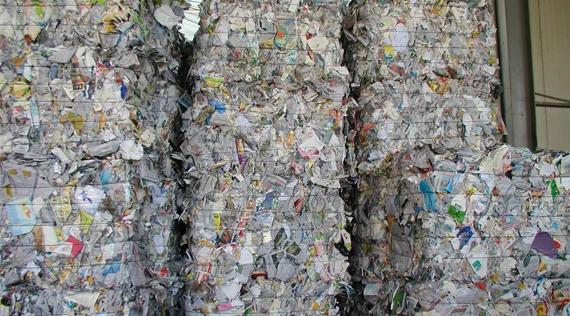US Plastic Reduction Under Pressure As Manufacturing On The Rise
Plastic Recycling | 2024-04-26 02:16:44
Cutting plastic production would also hit the bottom line of oil majors such as Exxon.

SEATTLE (Scrap Monster): World leaders are gathering in Ottawa, Ontario, this week to hash out a global treaty to end plastic pollution.
It's a pivotal point in the talks, with countries aiming to strike a deal by the end of the year. The US has positioned itself as a broker between other big oil, gas, and petrochemical exporters — including Russia, Iran, and Saudi Arabia — and countries that want steep cuts to plastic production.
But critics say the US isn't being ambitious enough.
"We'd like to see clear recognition from the US that the treaty has to confront the production of plastic polymers and resins if it's to be successful," Carroll Muffett, the president and CEO of the Center for International Environmental Law, told Business Insider. "We cannot recycle our way out of the plastics crisis."
Muffett is among a handful of scientists and business and community advocacy groups who told BI they wanted to see a stronger position from the US. The country has a lot of sway as the world's largest exporter of oil and gas, the main ingredients in plastics. The US has also been at the forefront of a massive build-out of new plastics and petrochemical plants over the past decade. The Environmental Integrity Project, a Washington, DC-based nonprofit, identified 50 plastic plants built after 2012 and found that at least 20 more would be built or expanded over the next five years.
The trend is global. Plastic production is expected to nearly triple by 2060 unless countries reach a deal to rein it in, according to the Organization for Economic Co-operation and Development. A treaty could be the most impactful climate action since the Paris agreement because the plastic industry accounts for 5% of global carbon emissions. That could grow to 20% by 2050 if current trends continue, the US Lawrence Berkeley National Laboratory said.
A State Department spokesperson in an email said the US is concerned that "overly prescriptive approaches" to ending plastic pollution put the treaty at risk because the largest producers and consumers of plastics might not support it. The US position is focused on policies that drive down the demand for new plastic, such as through government incentives and reuse models. However, the spokesperson said that countries "would not be precluded" from adopting their own policies.
The Biden administration wants to finish a deal this year, given that the presidential election is in November, several observers of the negotiations told BI. But it will be difficult to persuade the Senate to ratify a treaty, they said.
In Ottawa, major disagreements remain over how to tackle the more than 350 million metric tons of plastic waste produced globally each year, much of which ends up in landfills and the environment. Only 9% of plastics are recycled.
Hundreds of businesses and countries support cutting plastic production. This could involve phasing out "problematic" plastics that can't be recycled or are harmful to public health and mandating that products be made with more recycled material. Taxing plastic polymers is also being discussed, which could help finance improvements to waste infrastructure in developing countries.
"Shared financial responsibility is something we really want to see," Allison Lin, the global vice president of packaging sustainability at Mars Inc., said. Lin represents the Business Coalition for a Global Plastics Treaty, which includes more than 200 companies. Among them are Walmart, PepsiCo, and L'Oréal.
Lin said the coalition supported a policy called extended producer responsibility, which slaps a fee on companies' packaging to help fund recycling and collection and has been successful in countries such as Belgium. Plastic makers similarly should bear some of the financial burden, she said.
Stewart Harris, a spokesperson for the International Council of Chemical Association, agreed that plastic makers needed to make greater investments, and the group supports EPR and recycled-content mandates. But the industry is opposed to taxes because they would be difficult to implement and it would be hard to ensure money flows into programs tackling plastic pollution, he said.
Plastic makers also oppose setting caps on production, as do countries including Russia, Iran, and Saudi Arabia. Harris cited an industry-commissioned report by Oxford Economics that found a cap could increase costs for consumers as well as greenhouse-gas emissions. Plastics require less energy to manufacture and transport compared with some other materials, the report found.
Cutting plastic production would also hit the bottom line of oil majors such as Exxon. The International Energy Agency forecast that by 2050, petrochemical products like plastic would outpace trucks, aviation, and shipping in oil demand.
Courtesy: www.businessinsider.in
 By
By 



